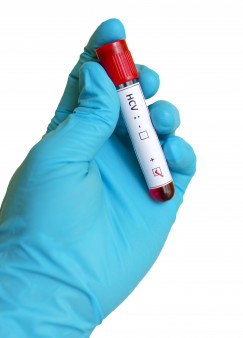Compared with those who have only HIV, people who are also living with hepatitis C virus (HCV) have a higher risk of developing non-AIDS-defining cancers.
Researchers studied data on more than 2,300 adults with HIV who received medical care in Spain between 1993 and 2014. Thirty-seven percent of them were coinfected with HCV. Just 17 percent of the coinfected individuals received hep C treatment; 48 percent of these individuals were cured.
Compared with the general Spanish population, the diagnosis rate for all types of cancers among the study group at large was 3.8-fold higher; the rate for AIDS-related cancer was 27.2-fold higher; and the rate for non-AIDS-related cancers was 2.3-fold higher. Also compared with the general population, those with HIV monoinfection and HIV/HCV coinfection had a non-AIDS-related cancer diagnosis rate 1.8-fold and 3.4-fold higher, respectively.
Compared with those with HIV monoinfection, those with HIV/HCV coinfection had a 1.8-fold increased risk of non-AIDS-related cancers. After factoring out liver cancer, the researchers found this relative risk was still elevated but reduced to a 1.26-fold increased risk.
Asked for tips on reducing cancer risk among coinfected individuals, the study’s lead author, Alvaro Mena MD, PhD, of the HIV and Hepatitis Unit of the University Hospital of A Coruña in Spain, advised starting hep C and HIV treatment earlier in the course of each infection and to avoid drugs and alcohol.
“It should not be forgotten that smoking cessation is the best possible intervention to reduce the risk of cancer—not just lung cancer,” Mena advises.







Comments
Comments